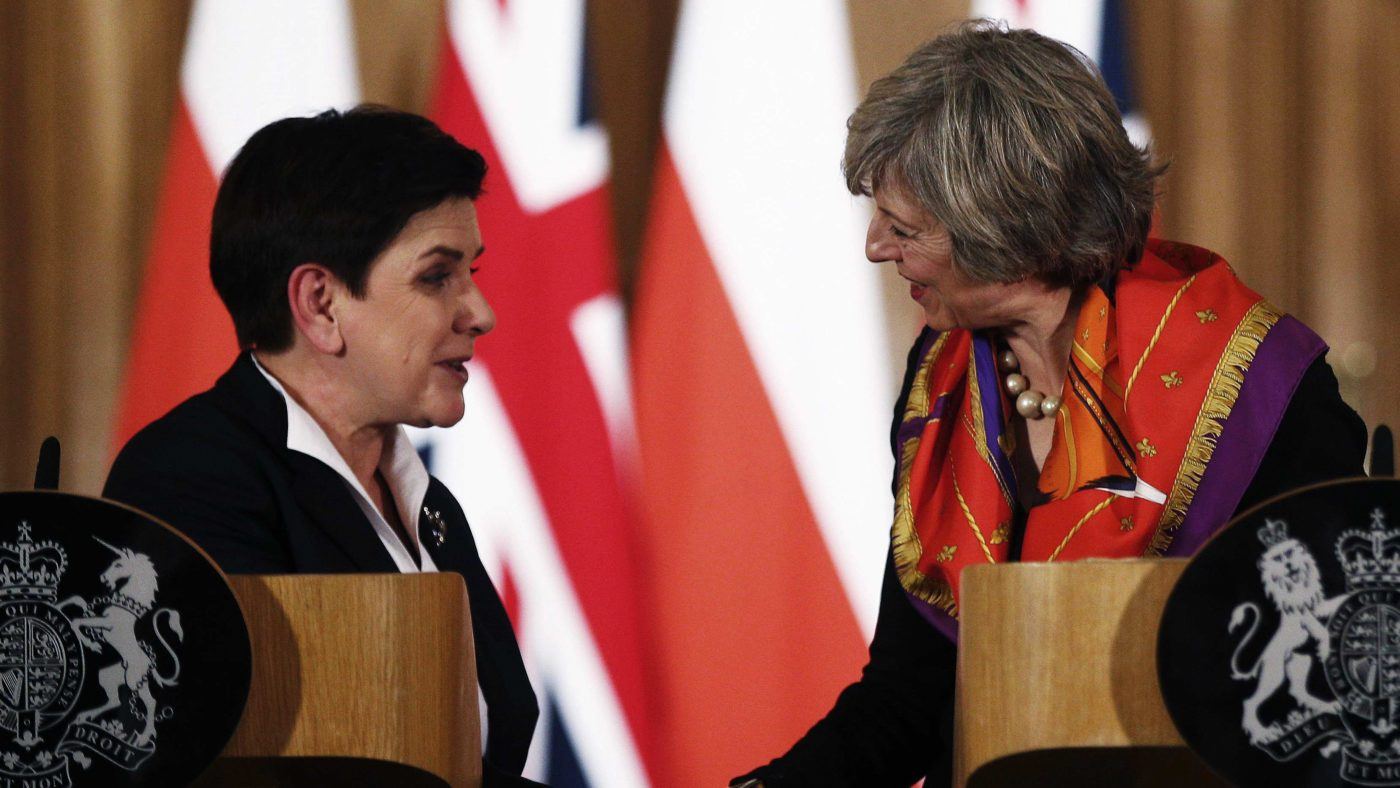Of all the Brexit titbits ‘leaked’ in the scribbled notes carried out of Downing Street by a parliamentary aide to Mark Field MP this week, the most germane is probably that “headlines won’t change from now until March”.
In the absence of a “running commentary” from the Government, it is understandable that every little morsel of information will be pored over by the media. But there was little new to be gleaned about the negotiating position that we didn’t already know.
According to the notes, the UK is unlikely to favour the Norway model of remaining in the single market for at least two reasons.
First, is the degree of EU oversight via supranational institutions such a model would entail. Second, as a “rule taker” from Brussels, not only would the UK have to submit to EU regulation for much of its domestic economy without a vote in the legislative process, it would also be giving up the flexibility it will need in discussions with non-EU states. And to conclude trade deals covering services, the ability to put liberalisation of your domestic regulation on the table is essential.
The free movement of people is a third reason why remaining in the single market is unlikely to appeal to the Government. Theresa May was very clear about this at the Conservative Party Conference, when she said: “We are not leaving the EU today to give up control of immigration again and we are not leaving only to return to the jurisdiction of the European Court of Justice.”
So where does this leave us?
“Canada plus” has been mentioned. As has “have cake and eat it”.
These are both merely shorthand for the-best-possible-and-most-open-bilateral-trade-agreement-that-can-be-negotiated. As the Government has said publicly, Brexit is a unique situation and, therefore, it is not aiming for an “off the shelf” model.
Obviously, none of us yet knows how comprehensive the deal might be, but we should aim high.
Equally, the assumption that “manufacturing relatively straightforward; services harder” is a decent prediction.
Retaining zero tariff trade on goods should be simple enough, given the large volumes already traded and the relative ease of doing so in other trade agreements struck by the EU.
The real difficulty in all trade agreements is the liberalisation of services markets. This is more politically contentious because it delves far deeper into the domestic regulation of economies and usually requires advanced international mechanisms (or “foreign courts”) to settle disputes over how these regulations should be interpreted.
But perhaps the most interesting reference in the leaked notes was to the prospect of a “transitional deal”, which some ministers are apparently “loathe to do” as “Whitehall will hold on to it”.
Some form of transition is likely to be required to bridge the gap between formally leaving the EU institutions in early 2019 (presuming Article 50 is triggered early next year) and tying up a comprehensive new trade agreement, which could take longer.
The challenge facing Government, however, which the notes alluded to, is to ensure that the transition does not become the “new normal”.
So, if the direction of travel towards the objective of a bilateral trade deal is clear (from everything the Government has said publicly, it is), then what is the EU’s response likely to be? This is where we are on far less certain ground.
At present the EU is united in stating that there will be “no negotiation without notification” of Article 50.
The European Council President, Donald Tusk, and German Chancellor, Angela Merkel, also stand by the notion that the “four freedoms” (free movement of goods, services, capital and workers) of the EU’s single market are inseparable. Fair enough.
However, it is becoming clear the UK is unlikely to seek membership of the single market on different terms.
Instead, it will seek preferential access to the market that reflects the geographic and economic proximity of the UK and the EU. If this is combined with a positive offer from the UK on other crucial issues including security, defence and development spending, then individual EU member states are likely to view the negotiating trade-offs differently.
It is exactly the absence of any reference to these issues in those leaked minutes, that would now be member states’ primary concern at this stage.
We have already seen the Polish Prime Minister, Beata Szydlo, stressing the need to maintain strong security, not only economic, links with Britain and a desire for “compromise”.
How will the new French President weigh the situation? Once the UK sets out its position publicly – by March next year – the ball will be in the EU’s court and that’s when things will really get exciting.


